Many of us can’t live without coffee. But no matter how strong the drink is, you can drink too much of it. How much caffeine in a cup of coffee? Here’s what you need to know.
The FDA says that healthy people should not have more than 400 milligrams (mg) of caffeine per day. This is usually about three or four cups of coffee per day, but serving amounts and types of coffee vary a lot.
“You might think coffee and caffeine are easy, but they’re not,” says Elizabeth Barnes, MS, RDN, owner of Weight Neutral Wellness and a non-diet dietitian. “Many things affect how much caffeine is in your morning cup of coffee. The amount of caffeine in coffee depends on the type of coffee bean used, the amount of water used, how tightly the grounds are packed, the size of the grind, and how long the grounds are soaked. There are also a lot more factors!
Also, if you are pregnant or nursing? Laura A. Ali, RDN, a culinary nutritionist in Pittsburgh, PA, says, “Most research, including a large scientific review done in 2017, continues to show that children, pregnant and breastfeeding women, and people at risk for cardiac arrhythmias should limit or avoid caffeinated beverages.” For example, experts usually say that pregnant women shouldn’t have more than 200 mg of caffeine per day.
What is caffeine?
Caffeine, which is found in tea, coffee, and chocolate, is a natural stimulant that the body makes itself. It makes the brain and central nervous system work harder, which keeps you awake and stops you from getting tired.
According to history (1Reliable Source), the first cup of tea was made around the year 2737 BC. After many years, an Ethiopian shepherd is said to have found coffee after seeing how much more active his goats were after drinking it. At the end of the 1800s, soft drinks with caffeine and energy drinks became popular.
80% of the people in the world now drink a caffeine drink every day, and 90% of adults in North America do the same.
What Factors Affect Caffeine Content?
The amount of caffeine in coffee varies on a lot of things, such as:
- Types of coffee beans: There are many different kinds of coffee beans, and they may have different amounts of caffeine in them by nature.
- Roasting: Even though darker roasts taste better, they have less caffeine than lighter roasts.
- Type of coffee: The amount of caffeine in prepared coffee, espresso, instant coffee, and decaf coffee can be very different.
- Serving size: “One cup of coffee” can be anywhere from 30 to 700 ml (1 to 24 oz), which has a big effect on how much caffeine is in the whole cup.
How much caffeine in a cup of coffee?
The type of coffee you drink is the main factor in how much caffeine it has.
Espresso
Espresso usually has about 70 mg per 1 ounce served. This is because the coffee is only in touch with water for about 20 to 30 seconds during extraction, compared to 1 to 4 minutes with traditional methods like pour-over or French press. Espresso beans are usually finely ground, which makes more surface area for extraction. This means that espresso has more caffeine than drip coffee or French press coffee, which use coarser grinds.
Brewed Coffee
Brew coffee, which is also called filter coffee, is made from ground coffee beans. Most of the time, a paper, metal, or plastic filter is used to separate the grounds from the brewed coffee. There are many ways to make coffee, but the filter, the percolator, and the French press are the most popular. Trusted Source: An 8-ounce cup of brewed coffee usually has 95 mg of caffeine.
Espresso-Based Drinks
Espresso shots mixed with different kinds and amounts of milk are used to make a lot of famous coffee drinks.
Among these are lattes, cappuccinos, macchiatos, and Americanos.
Since the milk doesn’t add any more caffeine, these drinks have the same amount of caffeine as straight espresso.
The usual amount of caffeine in a single (small) and a double (large) is about 63 mg and 125 mg, respectively.
Instant Coffee
Each cup of instant coffee has about 62 mg of caffeine. Instant coffee has less caffeine than regular coffee that is made. Instant coffee has half as much energy as brewed coffee. This is a big difference because instant coffee is dried coffee, not dry beans. Coffee beans are crushed and ground into a fine powder, which is then mixed with water to make instant coffee. Then it is kept safe using a number of methods.
We add more water to instant coffee when we make it. Since you add water to instant coffee, which already has a small amount of water in it, the amount of caffeine in it goes down even more. So, the blend has more water than the coffee that has been brewed.
Decaf Coffee
Decaf coffee still has a small amount of caffeine, but it is less than regular coffee. Most decaf coffee has between 2 and 15 mg per 8 ounces, while normal coffee has about 95 mg per 8 ounces (1 cup).
Cold Brew
Cold-brew coffee is not made in 8-ounce cups but in about 16 ounces of water. Putting ground coffee in cold water and putting it in the fridge for 10 to 24 hours makes cold brew. Remember that it’s not the same as pour-over iced coffee. It comes in 16-ounce cups, and each of those cups has between 200 and 280 mg of caffeine. Some brands, like Dunkin’ Donuts, have much more caffeine in their cold brew.
But the amount of caffeine in cold brews can vary based on how long they are brewed, how finely they are ground, and what kind of coffee beans are used. If you leave your cold brew in the fridge for 24 hours or more, it will have more caffeine than if you only left it there for 8 hours.
Also, your cold brew will have more energy if you used powdery or fine coffee grounds than if you used coarse grounds. The caffeine content will also go up if you use more coffee grinds. Some types of coffee have more caffeine, so if you use them, your cold brew will also have more caffeine.
Don’t forget that cold brew coffee has more energy than iced coffee. Each 16 ounces of iced coffee has 165 mg of caffeine.
Effects of Caffeine on Coffee
Immediate Effects
Caffeine is a stimulant drug that works on your nervous system. When taken in small amounts (up to 400 mg/day), it can make you feel aware and full of energy. But if you drink more than 400 mg of caffeine per day, it can cause jitteriness, nervousness, insomnia, headaches, a faster heart rate, and higher blood pressure, which can be dangerous if they last for a long time. Everyone can handle different amounts of caffeine, so it’s important to pay attention to how much you’re drinking to stay within your range and get the most health benefits from it.
Long-term Effects
Some studies show that drinking coffee in moderation (up to 4 cups a day) can be good for your health as a whole. However, long-term overconsumption can cause stomach problems like indigestion or heartburn due to the high acidity levels in some coffee beans or drinks. Because of this, it’s important to keep an eye on your daily caffeine intake to get the most health benefits from drinking it responsibly over time.
Conclusion
The amount of caffeine in a cup of coffee can change a lot based on things like the type of coffee bean used, how it was brewed, and how much was served. An 8-ounce (240-milliliter) cup of brewed coffee has about 80 to 100 milligrams of caffeine on average, but this can range from 30 milligrams in a light roast to 200 milligrams in a dark roast or specialty drink. It’s important to remember that everyone reacts differently to caffeine, and too much caffeine can make you feel jittery, raise your heart rate, and make it hard to sleep. So, knowing how much caffeine is in your coffee and drinking it in moderation can help you make smart decisions so you can enjoy this favorite drink while keeping a good balance.
Reference website
- https://www.healthline.com/nutrition/how-much-caffeine-in-coffee
- https://www.foodnetwork.com/how-to/packages/food-network-essentials/how-much-caffeine-in-a-cup-of-coffee
- https://www.rd.com/article/how-much-caffeine-is-in-coffee/
Frequently Asked Questions
Is 200 mg of caffeine a lot?
Most people think it’s safe to take up to 400 mg of caffeine per day, or 200 mg per dose. Women who are pregnant should not take in more than 200 mg per day.
How much caffeine is in a single cup of coffee?
In the US and Europe, the most popular way to make coffee is to brew it. Brew coffee is also called regular coffee. To make it, you pour hot or boiling water over ground coffee beans that are generally in a filter. About 70–140 mg, or about 95 mg on average, of caffeine, are in an 8-ounce cup of brewed coffee (1, 2).
How much caffeine is in 5-hour energy?
Regular Strength 5-hour ENERGY® shots have 200 mg of caffeine, which is about the same amount as an 8-ounce “short” cup of the top premium coffee. The Extra Strength formula has about the same amount of caffeine as a 12-ounce “tall” cup of top premium coffee, which is 230 mg.
Can you eat 1g of caffeine?
Up to 10 grams of caffeine has caused seizures and vomiting, but people can get better in about 6 hours. At smaller doses of 1 gram, people can feel restless, irritable, nervous, vomit, have a fast heart rate, and shake.



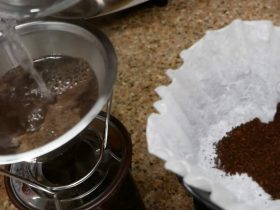

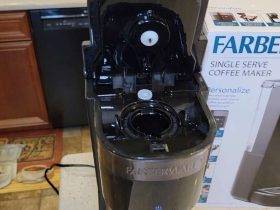

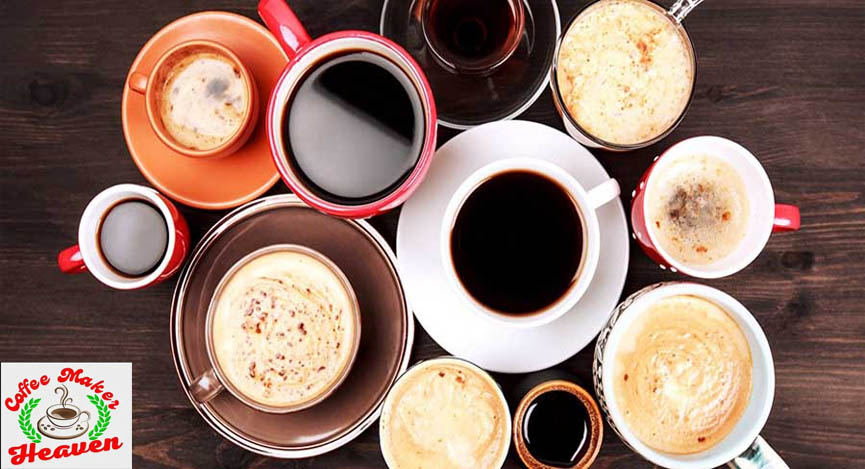

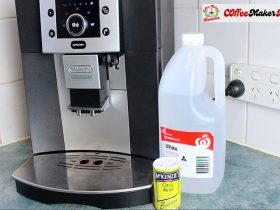


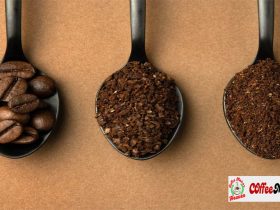

Leave a Reply